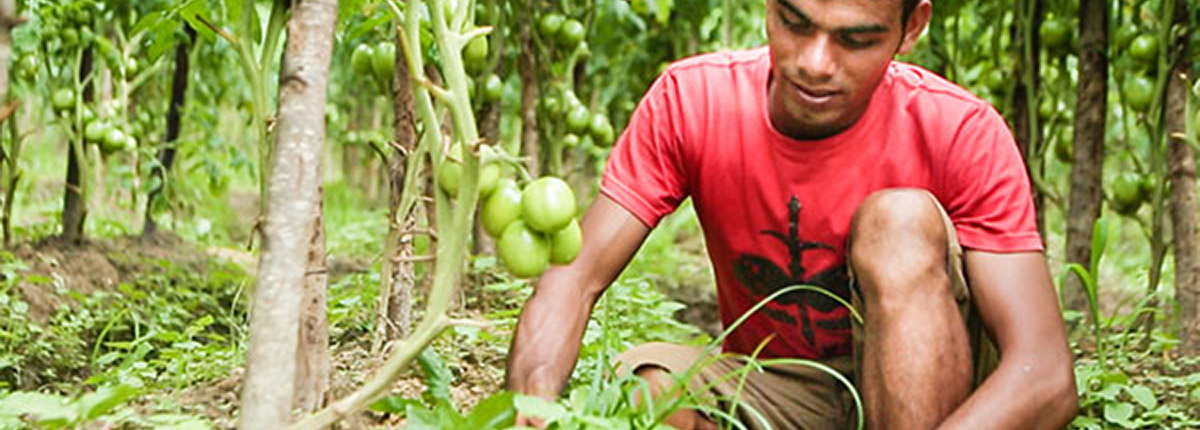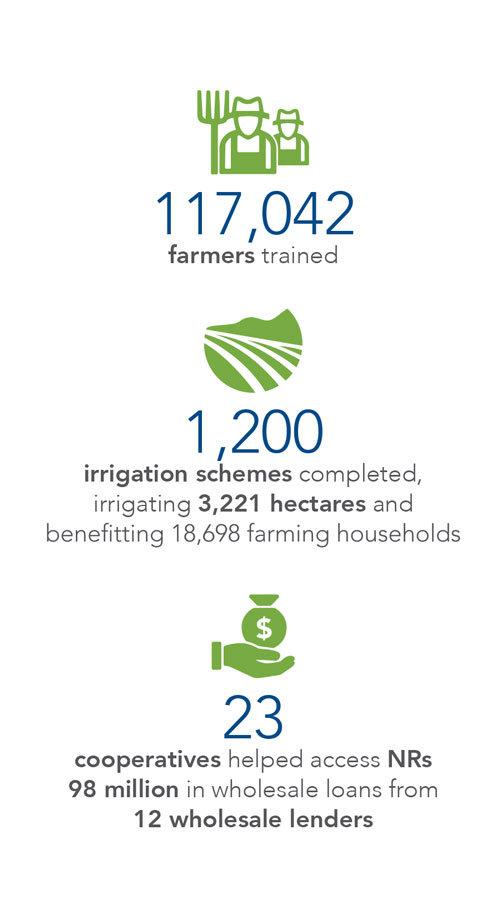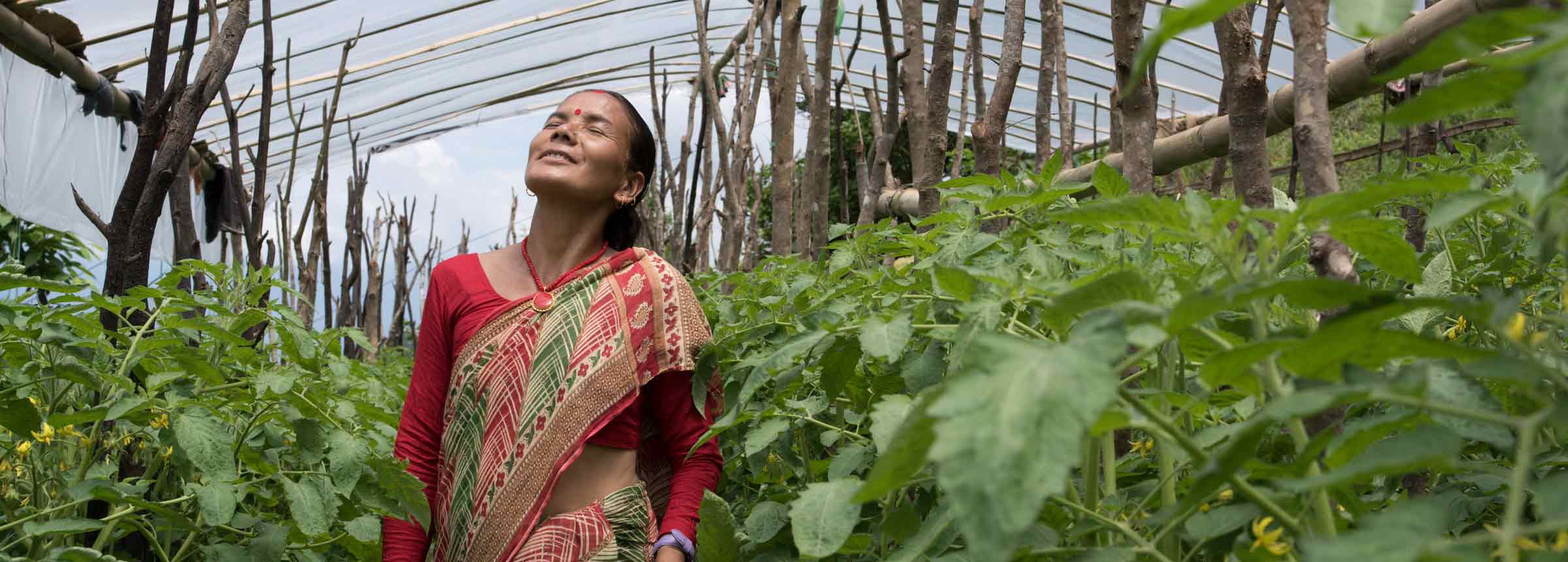
Forging Connections, Improving Lives in Nepal
Feed the Future KISAN improves food security and increase rural incomes in Nepal through agriculture, nutrition and sanitation activities

Judging by geography alone, Kumar Thapa lives an isolated life. Thapa’s hillside plot of land in the midwestern Nepalese district of Surkhet is surrounded by the tomato and chili plants that he carefully cultivates. There’s a quiet here that is broken only by the sounds of human labor – weeds being pulled or crops being harvested – or the occasional bursts of sound created by cascading sheets of rain pounding the ground during summertime monsoons.
Yet in many respects, Thapa is anything but isolated. Indeed, the fact that Thapa grows vegetables instead of the wheat and corn his parents grew on this same hilly terrain is the result of training he has received through the USAID funded Knowledge-based Integrated Sustainable Agriculture and Nutrition (or KISAN, which means farmer in Nepali) project. The skills Thapa has picked up are just the start: KISAN has also helped connect him to vegetable traders and markets, where the tomatoes, cucumbers and cauliflower he now grows earn him a premium.
Creating virtuous connections between Nepal’s farmers, vegetable traders, agrovets (small businesses that supply seeds, fertilizer and instruction to markets) and markets have made a big difference in elevating smallholder incomes and improving the country’s food security. Launched in 2013 as part of USAID’s Feed the Future Initiative, KISAN reduces poverty and hunger by fostering the innumerable individual connections that are required to create a vibrant market. It is what is known as a “value chain” approach, and it taps into the powerful self-interest farmers, traders and agrovets have to make more money and improve the lives of their families.
The results have been impressive. Over its first four-and-ahalf years, KISAN assisted nearly 120,000 farmers in Nepal. It has also facilitated irrigation projects to benefit nearly 20,000 farming households and assisted 23 farmer cooperatives in obtaining wholesale loans totaling 98 million Nepalese rupees. By convincing and then assisting farmers in making the jump from subsistence agriculture to commercial farming and by forging critical connections to markets, KISAN has lifted the average annual household sales of agriculture products by over 300 percent.
This additional income is transformative. For Thapa, it has meant that he can purchase more land and better equipment and seeds so that he can continue to improve the quantity and quality of his crops. It also means that his two children will be able to do something he never could: attend school. “I have been investing my income from vegetables into the study of my children,” he says.
Related Projects

